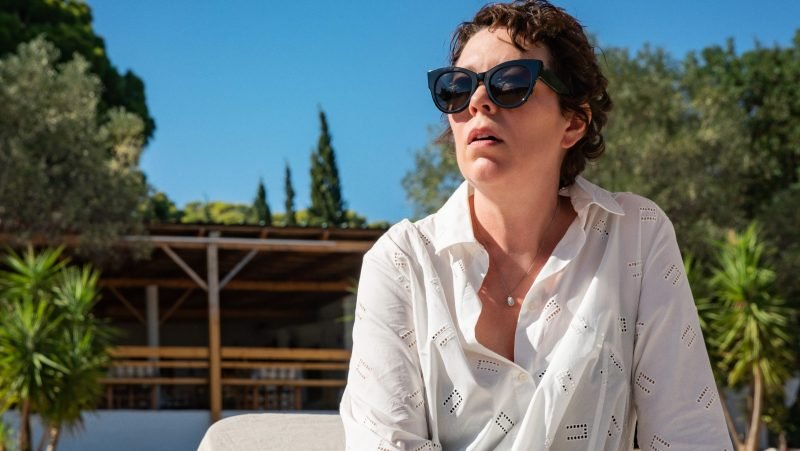For a number of attendees, this year’s Telluride Film Festival felt like a reunion. It had been two years since the last one took over the former mining town in the Colorado Rockies. For newcomers like myself, we don’t remember a time when masks weren’t mandatory in theaters or keeping a photo of our vaccine card handy wasn’t the norm. But the welcoming atmosphere was still there, even if the oxygen at that altitude wasn’t. At almost 2,000 feet above Park City, Utah, where Sundance takes place, Telluride earned cautionary advice like “don’t run,” “don’t drink too much,” and “buy an oxygen can.”
Once you brave the thin air in the San Juan Mountains and the unwieldy state of Colorado’s highways to get there, the Telluride Film Festival offered quite a lot to see in a short amount of time, including silent films from Italy’s Pordenone Silent Film Festival, a selection of movies by guest curator Barry Jenkins, and of course, more new releases than any one person can physically watch over Labor Day Weekend.
Out of so many films, certain themes started to emerge. A number of this year’s movies fretted over the role of parenting, the anxieties around it and questioning the effects one’s decisions had on their children. That’s one of the central tensions at play in Maggie Gyllenhaal’s adaptation of Elena Ferrante’s book, “The Lost Daughter.”
Olivia Colman plays Leda, a professor on vacation on a gorgeous island when a large, rowdy American family crashes her solo trip. A frustrated young mother (Dakota Johnson) in the group catches her eye, and their subsequent interactions bring back memories of her younger self (Jessie Buckley) as a similarly frazzled young mom in an unhappy marriage. The tension between past and present, along its with projections of assumptions and reality, make Gyllenhaal’s feature debut a riveting film to watch unfurl as Leda sinks deeper into her own memories and inadvertently creates more trouble between herself and Johnson’s character, Nina.

Reinaldo Marcus Green’s “King Richard” seems to be of two minds about parenting. At first, there’s Richard Williams (Will Smith) doggedly pursuing opportunities for his daughters, Venus (Saniyya Sidney) and Serena Williams (Demi Singleton), to become tennis stars despite their lack of means, proximity to plush courts and the sport’s lack of diversity. He pushes them so hard to be the best, it attracts the attention of a nosy neighbor. But then, Richard has a change of heart, realizing that pushing his daughters to the brink for the sake of success may cause them more harm than good in the long run.
He’s an imperfect parent, often loudly fighting with his daughters’ coaches and sometimes his wife Brandi (Aunjanue L. Ellis), and he makes decisions his daughters don’t always agree with, but even when he makes a misstep, the intention is always what he thinks is best for his daughters. But as almost any parent can tell you that even the best intentions aren’t enough to save them from heartbreak and disappointment.
The movie is an overall crowd pleaser, covering its emotional bases with inspirational speeches and soaring music cues as many sports movies often do. Smith’s performance as Richard may be a little overdone, but it’s effective, and his star power will help shine the spotlight on the performances from his co-stars like Sidney, Singleton and Ellis.

That’s one of the throughlines in Ry Russo-Young introspective documentary “Nuclear Family.” As the second daughter to a lesbian couple in the ’80s, Russo-Young was an accidental pioneer, along with other queer families of her generation, in disproving the prejudices against gay and lesbian couples who wanted to be parents.
The first episode of the mini-series, which will premiere soon on HBO, captures the hopeful rosiness her moms felt when conceiving her and her sister, Cade. Then, the perfect nontraditional family picture erupts when Russo-Young’s sperm donor, who was already in the family’s orbit, wanted more time with her and eventually sued for custody, an escalation that led to the family’s estrangement from him. By the series’ third chapter, Russo-Young questions the events on both sides and revisits the decisions made that led to the court case becoming a traumatic event in her life. It’s a bittersweet documentary memoir with few easy answers, and as the archival tape shows, it’s a project that Russo-Young has been working on for years. “Nuclear Family” is a sobering reminder that parenting is often the hardest road to travel, even with the best intentions.












